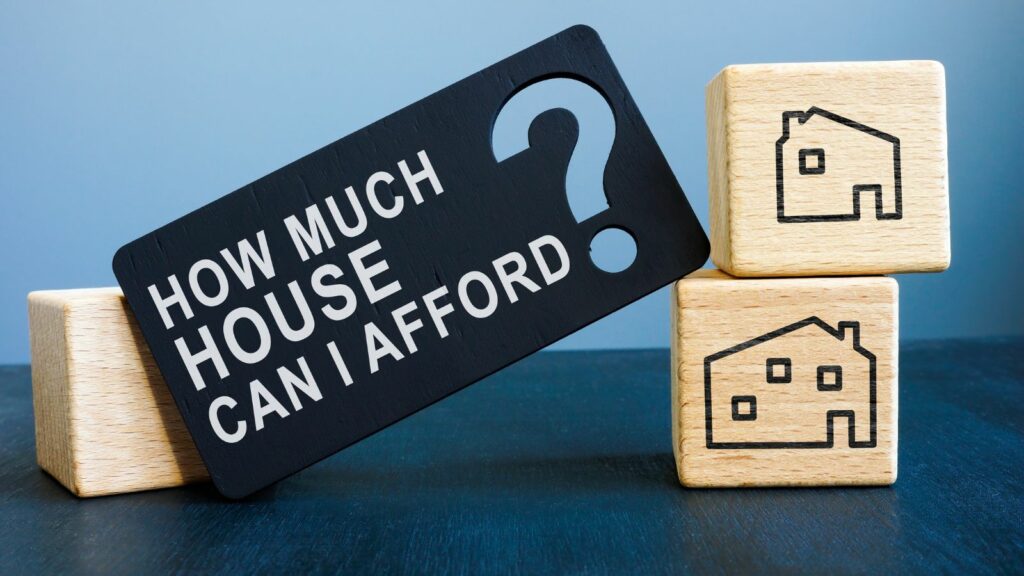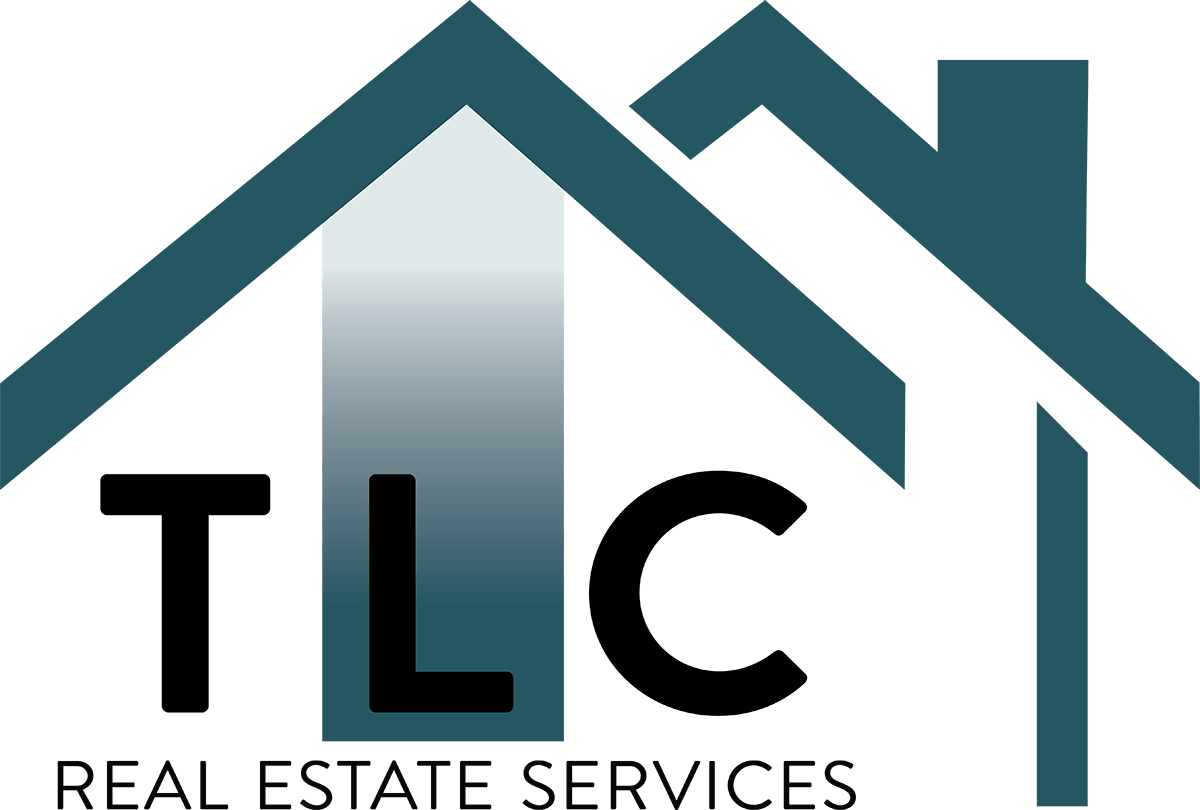Embarking on the home-buying journey invites a pivotal question – “How much house can I afford?” This inquiry is both financial and emotional, intertwining with your aspirations and lifestyle. Smartly addressing it ensures a comfortable living space and financial ease. By unraveling the mysteries surrounding home affordability, you pave the way for a smooth sail toward owning a dream abode. Through a blend of financial wisdom and market insights, let’s unveil the factors that guide you in determining the house you can warmly call home.

Earnest Money Deposit: Your Initial Step Towards Home Ownership
There’s more to determining a home’s affordability than its apparent price tag. Navigating through the initial stages of buying a home introduces you to various terms and processes, one of which is the earnest money deposit., which is a financial gesture showcasing your serious intent to purchase the home. It’s like an honorable handshake between you and the seller, creating a bond of assurance as both parties venture into the transaction. Typically, the amount of earnest money is between 1% and 5% of the home’s purchase price, though the precise amount will vary based on local market conditions.
The earnest money deposit is usually paid once your offer on a home is accepted and is often handed over to an escrow company, a neutral third party, to hold during the transaction process. This deposit then gets credited towards your down payment and closing costs once the deal reaches a successful conclusion. The escrow company ensures the funds are securely held and properly distributed as per the agreement terms.
Now, venturing into the ‘what if’ alley, if the deal falls through, the fate of your earnest money deposit hinges on the contingencies outlined in your contract. For instance, many buyers include contingencies like securing satisfactory financing or a favorable home inspection to protect themselves. If any of these contingencies aren’t met, and you back out of the deal within the specified timeframe, you typically get your earnest money back. However, if you decide to back out of the deal for reasons not covered by contingencies or if you miss any contingency deadlines, there’s a risk you might forfeit your earnest money deposit.
So, the earnest money deposit acts not just as a symbol of your intention but also as a small financial anchor during the initial stages of the home-buying process, with its fate intertwined with the terms agreed upon in your contract.
Laying the Foundation: The Significance of Your Down Payment
As you progress on the pathway of home ownership, the term ‘down payment’ becomes a frequent companion in conversations. It is the initial upfront portion you pay towards the home’s purchase price, and it plays a critical role in the home-buying process. The down payment is your initial investment in your dream abode, and it significantly impacts the trajectory of your home financing.
The amount you need to set aside for the down payment can vary, but it generally ranges between 3% to 20% or more of the home’s price. The exact amount often depends on the type of loan you’re acquiring and the lender’s requirements. Some loans, like conventional loans, usually require a higher down payment, while government-backed loans, such as FHA or VA loans, offer lower down payment options.
The moment of paying the down payment arrives after your offer has been accepted and any due diligence, like inspections or appraisals, has been completed. It is paid at the closing table, where the deal is finalized and the keys to the home are handed over.
Your down payment is not just a financial transaction but a leap toward establishing trust with your lender. A higher down payment often translates to lower monthly mortgage payments and could also exempt you from private mortgage insurance (PMI), which is typically required if your down payment is less than 20% of the home’s price.
There are numerous assistance programs available that can help ease the burden, making the down payment less of a hurdle on your way to home ownership.
In essence, the down payment is a significant stride towards claiming ownership of your new home. It not only alleviates the long-term financial burden by reducing monthly mortgage payments but also establishes a sense of credibility and commitment in the eyes of your lender, smoothing your journey towards turning the key in your new front door.
Additional Closing Costs
As you near the finish line in the home-buying journey, you’ll encounter a pivotal phase known as closing. This phase is where the ownership of the home officially transfers from the seller to you. However, this phase brings along a set of expenses known as closing costs, which are essential to complete the transaction and ensure a seamless, smooth transition of ownership.
Closing costs encompass a variety of fees that are associated with finalizing your home purchase. They include loan origination fees, appraisal fees, title insurance, escrow fees, credit report charges, and other processing fees. These costs are vital as they cover the services and processes that ensure a lawful and secure transfer of the property.
Typically, closing costs amount to about 2% to 5% of the loan amount. It’s advisable to budget for these costs early on to avoid any last-minute financial hitches. Your mortgage lender must provide a Loan Estimate document within three days of receiving your loan application, which will give you a ballpark figure of your closing costs. Later, a few days before closing, you’ll receive a Closing Disclosure that outlines the final closing costs.
You are required to pay the closing costs at the closing meeting, where the deal is finalized. They are separate from your down payment and are additional costs you should be prepared for.
In the event there’s room for negotiation, you might be able to negotiate that the seller pays for some or all of the closing costs, which can be a part of the purchase agreement and can aid in alleviating the financial burden as you step into homeownership.
Paving Your Path to Approval: Qualification Essentials for Homebuyers
Stepping into the realm of homeownership necessitates a thorough evaluation of your financial standing. This evaluation is pivotal for lenders to gauge your capability and reliability in managing a mortgage. Among the crucial factors that come into play are your credit score, debt-to-income ratio, and adherence to the 28/36 rule. Let’s delve into these components to equip you for a favorable evaluation:
Credit Score: Your credit score, in a nutshell, is a numerical representation of your creditworthiness, reflecting your history and behavior in managing credit. It’s akin to a financial report card that lenders scrutinize to determine the likelihood of you repaying the loan. A higher score not only smoothens your path toward loan approval but could also fetch you lower interest rates. Typically, a credit score of about 620 or higher is desired for a conventional loan, while FHA loans might accommodate scores as low as 580.
Debt-to-Income Ratio (DTI): This ratio is a comparison of your collective monthly debt to your gross monthly income. It provides a snapshot of your financial obligations in relation to your earnings. A lower DTI is favorable as it indicates a better balance between debt and income. Lenders often look for a DTI below 43%, although the lower, the better, as it exhibits a lesser financial strain.
The 28/36 Rule: This rule is a guideline for individuals to manage their debt efficiently. According to this rule, it’s advisable to allocate no more than 28% of your gross income monthly to housing expenses, which include mortgage payments, property taxes, and insurance. Additionally, your total monthly debt payments, which include car loans, credit card payments, and other debt, should not go above 36% of your gross monthly income. Adhering to this rule demonstrates a disciplined financial approach and can enhance your attractiveness to lenders.
The Pre-Approval Passport: Your Ticket to a Tailored Home Search
Stepping into the home-buying arena with a mortgage pre-approval in hand is akin to having a golden ticket. This preliminary nod from a lender not only clarifies the amount you can borrow but also significantly elevates your standing in the eyes of sellers. The pre-approval process entails a thorough examination of your financial landscape, including your income, assets, debts, and credit score. The result is a letter stating the mortgage amount you are likely to be approved for.
Having this pre-approval letter is crucial in determining how much house you can afford. It aligns your home search with your financial capacity, saving you time and energy by avoiding properties outside your budget. Moreover, in competitive markets, a pre-approval letter sets you apart from other buyers, showcasing your serious intent and financial readiness.
In essence, mortgage pre-approval is a vital step that not only guides your home search but also enhances your credibility in the real estate market, propelling you closer to finding that perfect home within your financial reach.
The Price Mosaic: Factors Sculpting the Cost of Your Dream Home
As you delve deeper into your home-buying endeavor, understanding the myriad factors that sculpt the price of a house is crucial. These elements, ranging from external market conditions to intrinsic house features, collectively paint the financial picture of your prospective home. Let’s navigate through some of these significant factors:
Real Estate Market: The broader real estate market significantly impacts house prices. In a seller’s market, where demand outpaces supply, prices tend to soar. Conversely, in a buyer’s market, where supply overshadows demand, prices may be more negotiable. The economic climate, interest rates, and housing laws also play pivotal roles in molding the market and, subsequently, house prices.
Location: A prime location can command a higher price tag. Proximity to essential services, bustling commercial centers, and serene, safe neighborhoods are highly valued. The adage’ location, location, location’ holds a kernel of truth in the realm of real estate, underscoring its impact on house prices.
Proximity to Schools, Parks, and Transportation: Families often prioritize proximity to reputable schools, lush parks, and convenient transportation hubs. These factors not only enrich daily living but also hold the promise of vibrant community life, adding a premium to the house price.
Amenities: Nearby amenities like shopping centers, restaurants, gyms, and theaters enhance the attractiveness of a house. The convenience and lifestyle these amenities offer are often reflected in a higher price point.
Size, Layout, and Yard: The size of the house, its layout, and the yard space contribute to its price. A spacious, well-designed layout with a generous yard for outdoor activities is often more desirable and priced higher.
Floor Plan, Features, Fixtures, and Fittings: A modern, open floor plan, high-quality fixtures, and luxurious fittings add a touch of sophistication and functionality, escalating the house’s value. Unique features like a fireplace, hardwood floors, or a swimming pool can also elevate the price.
Each of these factors weaves into the price tapestry of a house, shaping its affordability. By understanding the influence of these elements, you can better gauge the price of your prospective home and align your search with your budget and preferences. This knowledge empowers you to make an informed decision as you inch closer to the doorstep of your dream home.
Beyond the Purchase Price: Preparing for Life in Your New Home
Embarking on the journey of homeownership is thrilling, yet it’s prudent to look beyond just the purchase price to grasp the financial landscape awaiting you fully. A myriad of additional costs accompanies this life-altering step, each deserving attention to ensure a smooth transition and a comfortable life in your new abode. Here’s a closer look at some of these significant costs:
Moving Expenses: The act of moving into your new home carries its own set of expenses. From hiring movers to packing supplies and possibly storage fees, these costs can accumulate quickly. Budgeting for these expenses ensures a stress-free move.
Home Maintenance and Repairs Fund: Every home, new or old, requires maintenance to keep it in good shape. Setting aside funds for regular maintenance tasks like lawn care, gutter cleaning, and minor repairs is wise. Additionally, a fund for larger unexpected repairs such as a leaking roof or a broken furnace is indispensable.
Emergency Fund: Life is full of unexpected scenarios. Having an emergency fund in place to cover three to six months of living expenses provides a safety net. Whether facing an unexpected medical bill or a temporary loss of income, this fund is a financial cushion that can provide peace of mind.
Avoiding House Poor Scenario: It’s tempting to stretch your finances to the limit to secure your dream home. However, living house-poor, where a large portion of your income goes towards your mortgage and home expenses, leaving little for other life pursuits, can lead to financial strain. Striking a balance between your home investment and other financial obligations and desires is key to enjoying a rich and fulfilling life.
Being well-prepared for these additional costs not only positions you for a smooth transition into homeownership but also fosters a stable and enjoyable life in your new haven. It’s about creating a wholesome financial picture that supports not only the acquisition of your new home but also the beautiful life you envisage in it.
Amplifying Your Spending Power: The Real Estate Agent Advantage
In the expedition of home buying, having a seasoned real estate agent by your side is like having a skilled navigator, particularly when it comes to stretching your dollar further. Here’s how a real estate agent can be your ally in maximizing your spending power and ensuring you get the most bang for your buck:
Market Knowledge: A real estate agent has a pulse on the current market conditions. They understand the trends, the pricing strategies, and the neighborhoods that offer the best value for your budget. Their insights can guide you to properties that align with your financial capacity while meeting your desires.
Negotiation Expertise: One of the significant advantages of having a real estate agent is their negotiation prowess. They can negotiate the price, terms, and conditions on your behalf to secure a favorable deal. Their skill in navigating through offers and counteroffers can save you a substantial amount, maximizing what you can get within your budget.
Access to Off-Market Listings: Sometimes, the best deals are not found on public listings but through the agent’s network. Real estate agents often have access to off-market listings, which can provide you with more options within your budget range.
Insight on Future Value: Agents can provide valuable information on the long-term value of a property. They can advise on the potential resale value, the development plans in the area, or school zoning changes, which could influence the property’s future value. This foresight can help you invest in a home that not only fits your current budget but also promises a good return in the future.
Guidance on Financing Options: While real estate agents are not financial advisors, they often have connections with reputable mortgage brokers or lenders and can guide you toward financing options that could enhance your buying power.
A real estate agent is not just a facilitator of the home-buying process but a valuable partner in ensuring your money works harder for you. Their expertise, network, and negotiation skills can significantly impact how much house you can afford and the value you obtain from your investment.
Your Companion in Home Ownership: Ready to Embark on this Journey Together
The voyage towards owning your dream home is filled with anticipation, discoveries, and crucial financial decisions. Each step shapes the contours of your home-buying experience, from understanding the myriad factors influencing home prices to preparing for additional costs. The canvas of affordability is broad, with various hues blending to reflect your financial readiness and the potential of turning your homeownership dream into a reality.
And you don’t have to navigate this journey alone. With a trusted real estate agent by your side, each stride you take is well-informed, each decision is empowered, and every dollar is optimized to work in your favor. Together, we can explore the market, align your financial capabilities with your desires, and unlock the door to a home that resonates with your aspirations.
When you’re ready to embark on this exciting journey, I am here to guide you through every financial nuance, every negotiation, and every step that leads to the threshold of your new home. With a blend of market expertise, a network of resources, and a dedication to your home ownership goals, we’ll navigate through the financial landscape, ensuring a seamless and rewarding home-buying experience.
Your dream home, with its perfect blend of comfort, location, and affordability, is within reach. Reach out; let’s take this significant step towards home ownership together. Your key to a comfortable and financially sound home awaits. Contact me, and let’s turn your home ownership dreams into a heartwarming reality.



